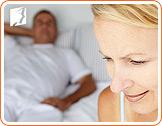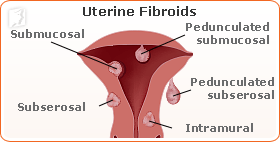Low libido is a persistent or recurrent lack of interest in sex. This is known in medical terms as hypoactive sexual desire disorder. However, this problem is often not as serious as it sounds, and it is important for suffers of any sexual problem to feel comfortable about seeking help. Low libido can result from a number of things and if you aren't as interested in sex as you'd like to be, you should not feel it is an over-reaction to seek help from your doctor.
Sexual desire fluctuates naturally over time, so a decline in libido is usually nothing to worry about. Highs and lows commonly coincide with the with a major life changes, such as pregnancy, menopause, or an illness. If you are bothered by a low or decreased libido, there are lifestyle changes and some sex techniques that may increase libido and put you in the mood more often. Read on for more information about low libido and how to overcome it.
What Are The Symptoms of Low Libido?
The major symptom of low libido in women is a decreased desire for sex. This is a commonly experienced symptom most women suffer at some point during their life.

Medical researchers acknowledge that it's difficult to measure “normal” libido levels, and thus to determine what a “low” libido level is. If you feel less desire for sex than your partner does, it may not mean that you're outside the normal levels, though the differences can still be problematic. For this reason, the most severe effects of low libido are often not the physical, but emotional, and can cause relationship issues.
What Are the Causes of Low Libido?
Causes of low libido are complex and can be divided into two sections: the hormonal and physical.
Hormonal cause
Changes in your hormone levels can also be significant in altering your desire for sex. For women going through menopause this is particularly relevant. Estrogen helps maintain the health of the vaginal tissues and interest in sex. However, estrogen levels drop during the transition to menopause, which can cause a decreased interest in sex and the drying of vaginal tissues, resulting in painful or uncomfortable intercourse. Women may also experience a decrease in testosterone during this time which lowers libido.
Physical causes

There are a range of physical problems that can cause low libido. For example, sexual dysfunction, such as anorgasmia, will dampen the desire for sex. Similarly, other medical conditions or diseases greatly affect desire for sex. These conditions can range from the uncomfortable arthritis and myomas to uterine cancer.
What Can Be Done about Low Libido?
Since a lack of libido is usually associated with the lowered hormone levels that result from menopause, a natural hormone balancing program is often the most effective solution to restoring a healthy libido. This often involves an exercise routine and a healthy diet, it can also be supplemented by alternative medicines that work to stimulate the body's own hormones responsible for libido. Click on the link below to learn about treating low libido with alternative medicines.
Sources
- Studd, John. "Loss of Libido and Menopause". The Management of Menopause. Annual Review 1998. Partenon Publishing.
- Channon L.D and Ballinger S.E. "Some Aspects of Sexuality and Vaginal Symptoms during Menopause and their Relation to Anxiety and Depression". British Journal of Medical Psychology. June 1986. 59 (2): 173-80.
- Sarell, Philip, M.D. "Psychosexual effects of menopause: Role of androgens". American Journal of Obstetrics & Gynecology. March 1999. 180: 3S-II.



